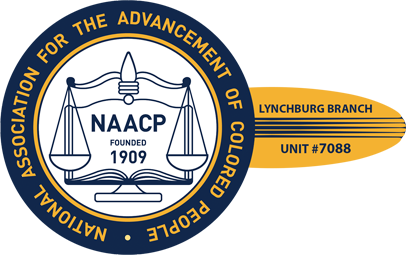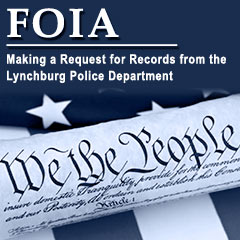RESOURCES ~
What To Do If Stopped by Police
Innocent individuals are often offended or angered because an officer has detained them for questioning. Although the delay might be inconvenient for you, the officer believes there is a reason (reasonable suspicion) to stop you and ask you some questions. Most of these stops are not officer initiated. The most common reasons that cause an officer to stop someone are as follows:
- You might be one of only a few people walking around in the area of a crime that was recently committed.
- Your clothing or description might be similar or identical to that worn by the suspect of a crime.
- A citizen might have called 911 complaining about your presence or that you looked or acted suspicious.
- Someone might have pointed you out to the officer. You might be behaving in a way that the officer considers suspicious.
- Police officers do not want to detain you any longer than necessary. Once the officer is able to determine that you are not the person that he/she is looking for, the officer will release you, thank you for your assistance, and return to duty.
In All Police Encounters:
- Avoid making sudden movements (for your wallet, for your coat, toward your waistband, etc.) until you inform the officer of your intentions and he/she has time to respond.
- Do not touch the officer or violate the officer’s personal body space. Keep 2-3 feet from the police officer.
- Remain calm and avoid arguing. If you are uncooperative and refuse to answer reasonable questions, the encounter will probably last longer than necessary.
- Comply first. Do what the officer asks you to do, then ask any question you might have. You will get an explanation from the officer or the officer’s supervisor later.
There are times when members of the public have contact with a police officer and they come away with feelings of frustration or dissatisfaction. The Lynchburg Police Department does not support or condone police misconduct of any type. In our experience, we have learned that those negative feelings are often a result of not knowing the reason(s) why an officer acted in a certain way. Unfortunately, the demands on a patrol officer do not always permit time for explanations at the time you are stopped. Hopefully, the information in this brochure will give you an understanding of police procedures and let you know what to expect if you are stopped by an officer.
What to Do if You are Pulled Over by the Police
- As soon as you notice the police emergency lights, pull your vehicle over to a safe location immediately. Although you may not know the reason, you should pull over right away. You may have committed a traffic violation or there may be a problem with your vehicle of which you may not be aware.
- Remain in your vehicle while the officer approaches you. Exiting your vehicle does not help the officer and may be perceived as a threat. The officer will ask you to exit if needed. As a courtesy, turn on your interior light at night to assist the officer in seeing inside your vehicle.
- Keep your hands easily observable by placing them on the steering wheel. Do not reach for the glove box or under your seat. This action may cause the officer concern that you are reaching for a weapon. Keep in mind that the officer does not know you, or what your intentions might be.
- Give your operators license and vehicle registration to the officer if asked to do so. Virginia law requires that this information be provided to the police officer if you are stopped. Most officers will explain their reason for the stop after they receive your information.
- Do not become argumentative, disorderly, or abusive. If an officer has already written a summons, it cannot be voided at that time. If you believe you have been unfairly treated, do not start an argument on the side of the road. Your best alternative is to share your concerns with a police supervisor or to the court that will hear evidence in your case.
- Please Don’t Be Offended. Most citizens already realize that law enforcement is a difficult and dangerous profession. Many police officers are killed each year and hundreds more are injured or assaulted. For this reason, police officers tend to be extremely cautious and place a great deal of emphasis on officer safety. Certain safety practices are instilled in our officers from their first day of training. Although these procedures maximize safety for the officer, they may seem impolite, offensive, or nonsocial to citizens who are not familiar with police practices.
- Even though you might have no intentions of causing the officer harm, officers will probably maintain a protective posture until they feel that there is no risk of confrontation or injury. Remember, a police officer’s job requires him or her to have regular encounters with dangerous people. As far as police officers are concerned, there are no “routine” pedestrian or traffic stops. Every citizen contact that the officer makes has potential for danger. All police officers know this fact: all citizens should be aware of it as well.
Freedom of Information Act (FOIA) Rights and Responsibilities
The Virginia Freedom of Information Act (FOIA), located § 2.2-3700 (http://leg1.state.va.us/cgi-bin/legp504.exe?000+cod+2.2-3700) et. seq. of the Code of Virginia, guarantees citizens of the Commonwealth and representatives of the media access to public records held by public bodies, public officials, and public employees.
A public record is any writing or recording regardless of whether it is a paper record, an electronic file, an audio or video recording, or any other format that is prepared or owned by, or in the possession of a public body or its officers, employees or agents in the transaction of public business. All public records are presumed to be open, and may only be withheld if a specific, statutory exemption or other law applies to those records.
The policy of FOIA states that the purpose of FOIA is to promote an increased awareness by all persons of governmental activities. In furthering this policy, FOIA requires that the law be interpreted liberally, in favor of access, and that any exemption allowing public records to be withheld must be interpreted narrowly.
Your FOIA Rights
- You have the right to request to inspect or receive copies of public records, or both.
- You have the right to request that any charges for the requested records be estimated in advance.
- If you believe that your FOIA rights have been violated, you may file a petition in district or circuit court to compel compliance with FOIA.
Making a Request for Records from the Lynchburg Police Department
- You may request records by U.S. Mail, fax, e-mail, in person, or over the phone. FOIA does not require that your request be in writing, nor do you need to specifically state that you are requesting records under FOIA.
- From a practical perspective, it may be helpful to both you and the person receiving your request to put your request in writing. This allows you to create a record of your request. It also gives the Department a clear statement of what records you are requesting, so that there is no misunderstanding over a verbal request. However, the Department cannot refuse to respond to your FOIA request if you elect not to put it in writing.
- You must provide your name and legal address.
- Your request must identify the records you are seeking with “reasonable specificity.” It does not refer to or limit the volume or number of records that you are requesting. It requires that you be specific enough so that the Department can identify and locate the records you are seeking.
- Your request must ask for records or documents. FOIA gives you a right to inspect or copy records; it does not apply to a situation where you are asking general questions about the work of the Department.
- You may choose to receive electronic records in any format used by the Department in the regular course of business. For example, if you are requesting records maintained in an Excel database, you may elect to receive those records electronically, via e-mail or on a computer disk, or to receive a printed copy of those records.
- If the Department has questions about your request, please cooperate with the staff’s efforts to clarify the type of records you are seeking, or to attempt to reach a reasonable agreement about a response to a large request. Making a FOIA request is not an adversarial process, but the Department may need to discuss your request with you to ensure that it understands what records you are seeking.
The Department’s Responsibilities in Responding to Your Request
- The Department must respond to your request within five working days of receiving it. “Day One” is considered the day after your request is received. The five-day period does not include weekends or holidays.
- The reason behind your request for public records is irrelevant, and the Department cannot ask you why you want the records before responding to your request. FOIA does, however, allow the Department to ask you to provide your name and legal address.
- FOIA requires that the Department make one of the following responses to your request within the five-day time period:
- Provide you with the records that you have requested in their entirety.
- Withhold all of the records that you have requested, because all of the records are subject to a specific statutory exemption. If all of the records are being withheld, the Department must send you a response in writing. That writing must identify the volume and subject matter of the records being withheld, and state the specific section of the Code of Virginia or other law that allows or requires the withholding of the records.
- Provide some of the records that you have requested, but withhold other records. The Department cannot withhold an entire record if only a portion of it is subject to an exemption. In that instance, the Department may redact the portion of the record that may be withheld, and must provide you with the remainder of the record. The Department must provide you with a written response stating the specific section of the Code of Virginia or other law that allows or requires portions of the requested records to be withheld.
- If it is practically impossible for the Department to respond to your request within the five-day period, the Department must state this in writing, explaining the conditions that make the response impossible. This provision will allow the Department seven additional working days to respond to your request, giving the Department a total of 12 working days to respond to your request.
- If you make a request for a very large number of records, and the Department feels that it cannot provide the records to you within 12 days without disrupting other organizational responsibilities, the Department may petition the court for additional time to respond to your request. However, FOIA requires that the Department make a reasonable effort to reach an agreement with you concerning the production or the records before it goes to court to ask for more time.
Costs
- You may have to pay for the records that you request from the Department. FOIA allows the Department to charge for the actual costs of responding to FOIA requests. These costs may include items like staff time spent searching for the requested records, copying costs or any other costs directly related to supplying the requested records. It cannot include general overhead costs.
- If the Department estimates that it will cost more than $200 to respond to your request, the Department may require you to pay a deposit before proceeding with your request.
- You may request that the Department estimate in advance the charges for supplying the records that you have requested. This estimate will allow you to know about any costs upfront, or give you the opportunity to modify your request in an attempt to lower the estimated costs.
Common Exemptions to FOIA Requests
The Code of Virginia allows any public body to withhold certain records from public disclosure. The Department commonly withholds records subject to the following exemptions:
- Requests by persons incarcerated in a state, local or federal correctional facility (§ 2.2-3703(C)).
- Personnel records (§ 2.2-3705.1 (1) of the Code of Virginia).
- Records subject to attorney-client privilege (§ 2.2-3705.1 (2)) or attorney work product (§ 2.2-3705.1 (3)).
- Tests or examinations used, administered or prepared for purposes of evaluation of any employee or employment seeker’s qualifications or aptitude for employment, retention, or promotion, or qualifications for any license or certificate (§ 2.2-3705.1 (4)).
- Vendor proprietary information (§ 2.2-3705.1 (6)).
- Records relating to the negotiation and award of a contract, prior to a contract being awarded (§ 2.2-3705.1 (12)).
- Plans and information to prevent or respond to terrorist activity, the disclosure of which would jeopardize the safety of any person (§ 2.2-3705.2 (4)).
- Complaints, memoranda, correspondence and evidence relating to a criminal investigation or prosecution, other than criminal incident information (§ 2.2-3706 (F) (1)).
- The Federal Freedom of Information Act only applies to federal agencies and not to the Department or other state agencies.
The following frequently requested records are governed by the following statutes:
- Active criminal investigations are governed by the restrictions set forth under § 52-8.3.
- Criminal history records are governed by the restrictions set forth under § 19.2-389.
- Accident reports and information regarding accidents are governed by § 46.2-379 and § 46.2-380.
- Sex Offender Registry information is governed by §§ 9.1-900 et seq.
- Criminal intelligence files, Title 28 Code of Federal Regulations, Part 23.
Where to Send A FOIA Request or Questions Regarding FOIA:
Lynchburg Police DepartmentProfessional Standards Unit
Lt. Marty Soyars, Sgt. Glen Anderson, Sgt. Todd Rhodes
905 Court Street
Lynchburg, VA 24504
Telephone: 434-455-6052
Fax: 434-847-1526
E-mail: professionalstandards@lynchburgva.gov


